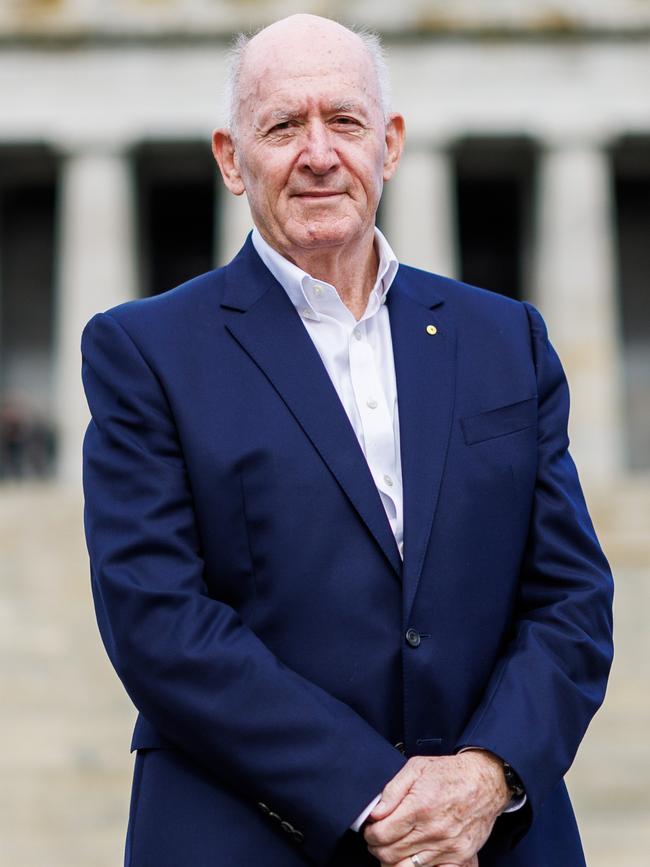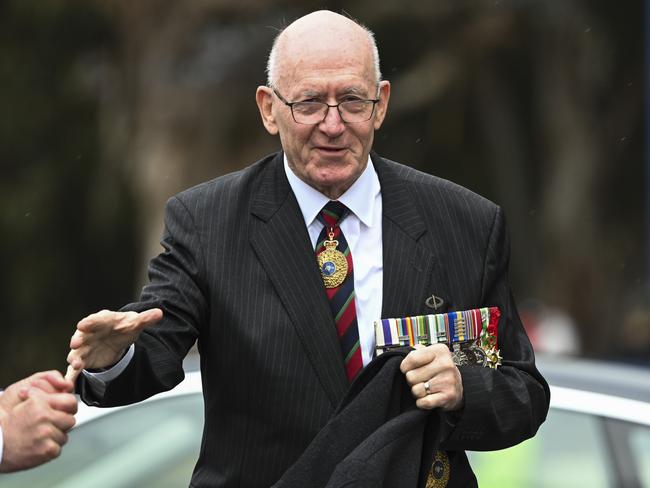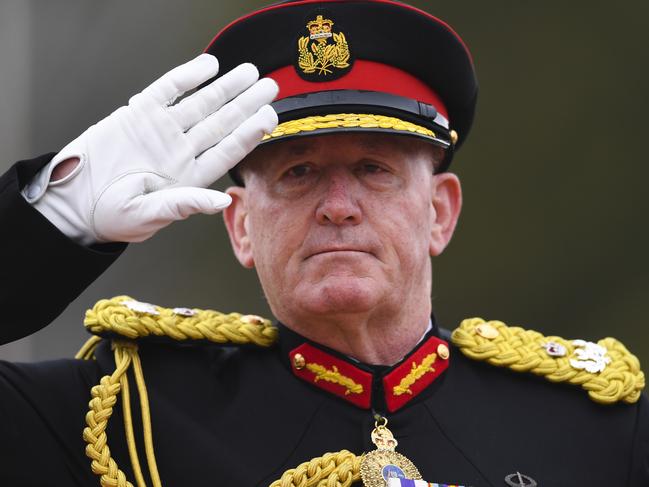Peter Cosgrove asks: ‘What’s happened to all-pervading civility in Australia?’
Is civility dying in Australia? Do you feel that in previous times, people were kinder, wiser, living in greater harmony? Australians need their leaders to help find it, writes Peter Cosgrove.
Opinion
Don't miss out on the headlines from Opinion. Followed categories will be added to My News.
Is civility dying in Australia?
Do you find, like me, that your rose-coloured glasses have a warmer tint as you get older? Do you feel that in previous times, people were kinder, wiser, living in greater harmony?
The past moved in the slow lane. In this Information Age still unfolding, we are bombarded with tales, images, urgings and opinions every time we glance at a screen or hear a broadcast, whether we are seeking them or not. We are informed, misinformed and disinformed all in the same day.
What has happened to all-pervading civility in Australia?
I come from a working-class family, with a sort of ‘mixed political marriage’ foundation. My maternal grandfather and my mum were staunch, lifetime Labor voters. (Pop, who lived with us, was a part-time union office bearer). Dad was on the surface politically agnostic for harmony’s sake but secretly a conservative.
In the early 1950s when Bob Menzies reigned supreme, he was up for election and Mum said she was carting me off to stand up the back of one of his campaign speeches at the Bondi Surf Club pavilion. Young as I was, I expressed surprise that Mum would want to hear from this arch-conservative, and she replied ‘You’ll never hear a better public speaker and debater’.

Menzies and his audience lived up to her billing – the audience of supporters and opponents were excited, occasionally raucous but fundamentally civil and respectful. Menzies
was a master orator and brilliant on the repartee.
Fast forward to 1975, when one of my predecessor Governors-General terminated Gough Whitlam’s commission; the sacked PM asked us to ‘maintain your rage’ from the steps of Parliament House, and there were protest marches – but equally there was a confident expectation we’d sort it all out at the ballot box.
Even then, as a pluralistic nation with strong political tidal flows, confident restraint prevailed in Australia.
Australia is a great democracy – one of the world’s greatest. We are proud of that and want every Australian to know it; to absorb or inherit that sense.
We know that among those other important and understandable reasons of safety and betterment, many of those who come to modern Australia do so because of the fundamental protections and opportunities afforded by our democratic model and practices.
We want, all of us, to know that our democracy confers on all of us huge opportunities and protections but also some accompanying obligations. Some of these are common in many places around the world (the rule of law, the rights of individuals for personal safety, lawful ownership of property). Some others of these rights and obligations are attached to our particular democratic model and indeed to our Australian character. Notably, freedom of speech, freedom of religion and its expression, our voting franchise, almost unlimited freedom to travel within and from Australia – all of these are precious rights that most of us take for granted.

Part of those freedoms is that of expressing personal viewpoints on any issue under the sun. It’s not germane here or anywhere else to try to apply objective Judgement to the validity of those views – that’s not the point! There will always be diverging views. It is our right to be vociferous, partisan, pungent, critical and even some may feel, unreceptive, even impermeable to other views.
But this freedom, one of the most precious available to Australians, has its limits: not limits defined in law but limits developed over centuries of the evolution of admired democracies – decency and respect from each of us to another. That’s key. We cannot expect the law to so describe and codify our behaviour in this regard that our fundamental freedom is still maintained. It has to formed, expressed and judged by the sort of ordinary decency, restraint and respect shown between family members and thereafter from family to family and so on. As a nation we are magnificently caring and compassionate when natural disaster or overt, urgent need affects our fellow Australians or those foreign communities beyond our shores. We roll up our sleeves and open our homes, our hearts and wallets. Compassion and empathy are part of our national DNA.
Perhaps my concern springs from a more insidious effect.

Legend has it that King Canute sat on a beach seeking to turn back the tide – quite unsuccessfully! One of the tidal effects of the Information Age has been the rise and rise of social media within the overall proliferation of digital information. Infants with iPads are quite a commonplace sight. Next time you see a young person crossing the road, have a mental wager that they will be fixated on their phone screen.

The solution to all of these various whinges of mine is quite simple but exquisitely difficult. It lies in Leadership (capital letter intended!).
At every level and in every situation the challenge for leaders is how do they function, on what do they base their manifesto of beliefs, motivations and actions? So much of leadership is to understand the environment and problems to be solved wherein that leadership will
be performed. Whether the leader is at national level or at the absolute grassroots of a small community, understanding and responding to the problems, the environment, the team to be led and the outcomes needed – all are crucial.
Yet in relation to my observations today, one leadership trait never really gets a guernsey.
The best leaders, the necessary leaders are those who are values-led, steeped in those universal values that we all should embrace.
This is not the enemy of pragmatic action and outcomes but is a constant review that our prized self-image as a decent, civilised society has not, is not losing its way. Governments and every other entity of community should reflect on the numerous times in our lives when leaders have brought us the more difficult but moral pathway – how very Australian that was, how Australian we all felt.
If a values-led leader sees a trend, a social movement, a campaign at odds with those values the leader should, must call it out.
Civility is not dying but I all too frequently it is lost, hard to find, hard to see. Australians need their leaders to help find it and keep it close.
Peter Cosgrove was Governor-General of Australia from 2014 to 2019.
More Coverage
Originally published as Peter Cosgrove asks: ‘What’s happened to all-pervading civility in Australia?’




